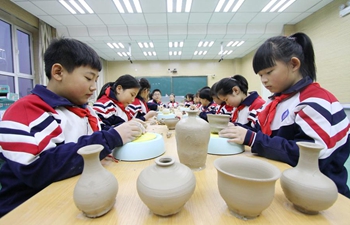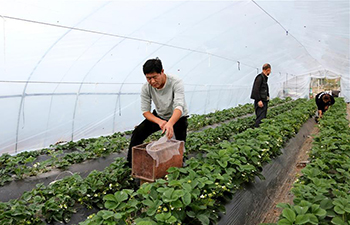SYDNEY, Nov. 15 (Xinhua) -- A significant link between intellectual disability and some forms of assisted reproductive technology reinforces the need for coordinated, long-term monitoring of outcomes of children conceived via those methods and the risks involved, according to latest Australian research.
Children conceived using the technology, which includes in vitro fertilization, between 1994 to 2002, had showed a small increased risk of intellectual disability overall, the Telethon Kids Institute said in a statement about its study on Thursday.
The risk will be doubled for those born very preterm or using a method in which a single sperm is injected directly into the egg, that known as intracytoplasmic sperm injection (ICSI), according to the statement.
The findings needed to be interpreted with caution due to the age of the data available for the study and the fact that technology and procedures in Western Australia had advanced since the analyses were conducted, lead researcher Dr. Michele Hansen said.
"During the study period, the transfer of multiple embryos in a single treatment cycle was the norm in Australia. This practice led to high rates of multiple pregnancies and preterm birth, which are both known to increase the risk of intellectual disability," Michele said.
"However, this practice has changed dramatically in Australia over time. As of 2016, 88 percent of treatment cycles saw only a single embryo transferred, resulting in much lower proportions of multiple and preterm births," Michele added.
The study covered more than 210,600 live births, of which about 1.4 percent were conceived using assisted reproductive technology. The findings were published in medical journal Pediatrics.
It also reinforced concerns about the intracytoplasmic sperm injection method, which was restricted to couples with severe male factor subfertility during the study period, but is now used more broadly, she said.
"ICSI fathers in our study were also older on average and we know that advanced paternal age is associated with a small increased risk of genetic mutations in sperm and genetic disorders in offspring," she added.
Michele said that the findings pointed to an urgent need for more recent data to try to establish whether the increased risks of intellectual disability are solely related to male subfertility and older paternal age, or if there are other risks associated with the technique itself.













